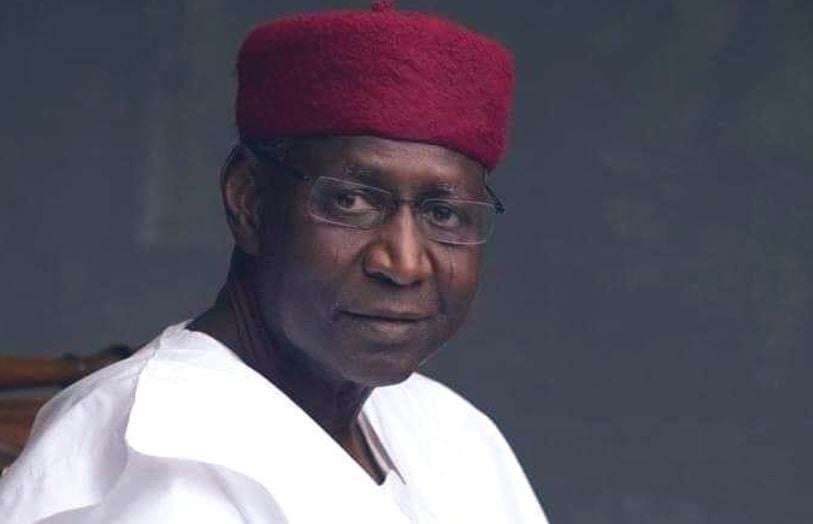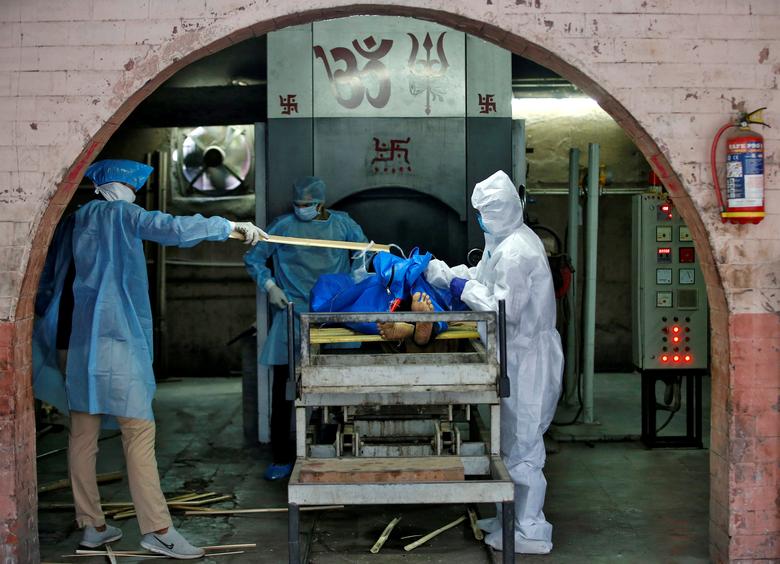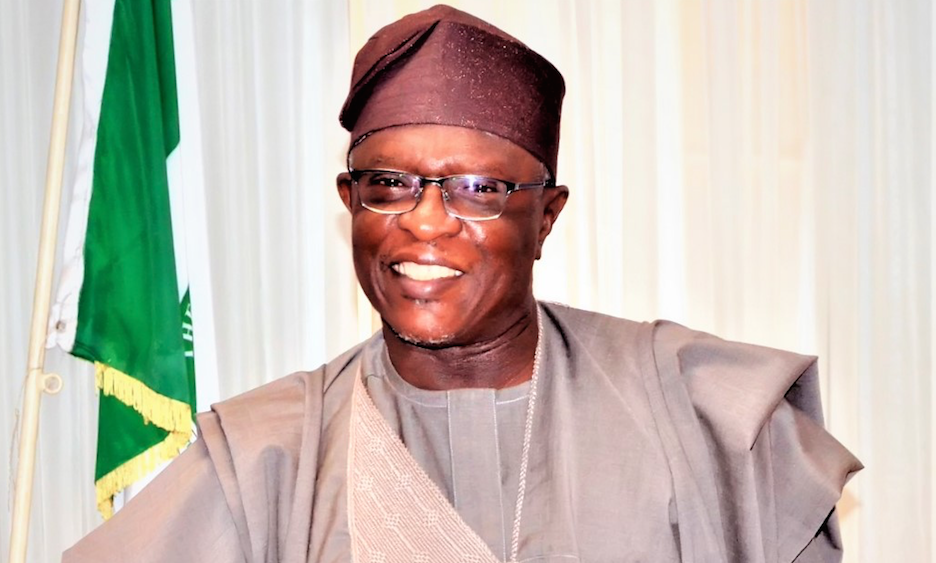BY ONYEMA OMENUWA
The death of Abba Kyari, the President’s Chief of Staff (CoS), on April 17, 2020, throws to the fore, again, the peculiar way Nigerians respond to such deaths. Whenever a Nigerian public official, particularly a political officeholder, suffers any kind of misfortune, many a Nigerian responds with jubilation. As intriguing as this is,it has largely remained a constant, dating back to probably 1998, when the brutal General Sani Abacha died in office;that Nigerians would celebrate,on the death of a political leader, or over an adversity affecting them.
It is debatable, though, whether or not it’s a greater percentage of the populace that embarks on such celebration. What cannot be contested, however, is that the celebration normally commands national attention and, concomitantly, heated debates on the propriety or otherwise, of it. Looking back, though, no jubilation has been as frenzied as that which attended Abacha’s death. In the wake of it, eruption of ecstatic jubilation took over virtually the entire nation. But that could be explained away:At least, there’s an enduring consensus that Abacha maintained a suffocating grip on the nation. So,citizens could only have responded to his sudden death,the way long-sentence prisoners would go wild,upon unexpected release from incarceration.
In a way, what happened on April 17, 2020 almost re-enacted the Abacha incident, in terms of the palpability of celebratory mood that pervaded many parts of the country, when news broke that Saturday morning that the former CoS had succumbed to COVID-19 the previous day.With hindsight, however, that emotion wasn’t entirely unexpected, if it could be recalled that when information filtered in,about three weeks earlier, that he had tested positive for the deadly virus, not a few Nigerians wished him the worst.
Advertisement
Some find this kind of wish quite insensitive, considering that such trying time is when any mortal, not least a figure regarded as the country’s political powerhouse, would really be needing the prayers of the generality of his fellow countrymen and women.But let’s not delude ourselves; there wouldn’t even be a fleeting thought of such empathy where such a leader is cast in the same mould as a menacing symbol of oppression, injustice, marginalisation and subjugation in the psyche of the citizenry. But that is the way it is. As with Abacha and Abba Kyari, so it promises to be with any Nigerian politician who occupies position of authority. At least, until the leaders change from all the negatives the citizens have come to associate with them. Or unless the citizens’ proclivity to wish their leaders ill suddenly changes.But that is not happening yet.
It would also have been noticed that it’s not just with the occurrence of death that such celebrations ensue. A sack from an exalted political office would equally elicit such unmasked ill will towards the fallen official.With this kind of apparent insensitivity, one may be compelled to assess Nigerians as extremely wicked towards their fellow citizens. Or, more appropriately, towards their leaders.Either way, this should give cause for deep reflection on what drives Nigerians. Are they driven by schadenfreude, that state of being where someone’s (read a leader’s) pain is instinctively reaped by another or others,as their gain, and finds expression in celebration?
Somehow, this question would be answered in the affirmative, by situating what may be the plausible reasons for such predilection in Nigerians. Indeed, on a critical thinking, it may not be far-fetched to conclude that the quick-to-celebrate Nigerians may be possessed of “justice-based schadenfreude” – the jubilation that erupts, according to WIKIPEDIA,“from seeing that…immoral or ‘bad’[conduct or behaviour] is punished. It is the pleasure associated with seeing a ‘bad’ person being harmed or receiving retribution.” I think that explains it. Nothing to add.
Advertisement
Contrary to what some analysts may postulate,truth is that Nigerians are instinctively moved to compassion. And being a compassionate lot, Nigerians can go out of their way to identify with one of their own in time of distress. But to be one of their own, you would have to be some kind of victim. If nothing else, you would have to be situated as that citizen who is at the receiving end of bad governance or the manifestation of it.Needless to say that majority of Nigerians qualify as such. So,it follows that ours has remained a nation of victims! Victimhood perpetrated by a small,but very powerful percentage of the populace. At any given period, they are notoriously tagged “the cabal.” Therefore, the citizens who celebrate the leaders’ misfortune locate those leaders in the “bad” or cabal bracket.
Abacha and Abba Kyari couldn’t have belonged elsewhere but in this bracket. And so do many, if not all, politicians, whether dead or living.This is the class that has mismanaged and continues to mismanage Nigeria. Curiously, for as long as the country has existed, this insignificant number has held the levers of governance under a vice grip, succeeding itself by manipulating the ascendancy of their cohorts, who themselves maintain the tradition of such succession. Talk about vicious circle; the naked reality of it appears to be the pivot on which this class rotates the Nigerian State. Unfortunately for the rest of us, such devious manipulations have had the debilitating outcome that has institutionalised bad governance as statecraft.
So, the ill will towards Nigerian leaders has a basis. Come to think about it, which person in their right mind wouldn’t be mad about and at the Nigerian situation and the leaders that have brought about the situation?The situation that has literally set Nigeria on perpetual motion but devoid of corresponding movement, whether politically or economically.Which citizen will be happy that at almost 60 years of Independence, everything that can be wrong with a country is wrong with Nigeria? The anger gets more intense with the awareness that resources abound, which ordinarily would have transformed the country into a nation of pride for all citizens.But that possibility has been trapped in the realm of wishes. A 200-kilometre pothole-free road in any part of the country is an illusion. Public power supply is so unsteady that noise and air pollution from private power generators now constitutes sources of serious ailments. Boreholes are sunk indiscriminately by private property developers because that is virtually the only source of water. Public education system, from primary to tertiary levels, is a total mess, standard-wise. In short, wherever some semblance of public amenities exists in the country,they are so poorly provided that they are an embarrassment to anybody with sense of national pride.
Yet, in the midst of this state of privations, political officeholders live large; of course sustained by public purse that should ordinarily be deployed for common good. So, when their children are not schooling abroad, they are in well-run private schools in Nigeria that only their class can afford.For their movements, they have public funds at their disposal, with which they can fly and only minimally travel on the bad roads. Of course, the funds are available too to guarantee private provisions of steady electricity and water for them. Interestingly, they just carry on, not giving a hoot about the fact that the good life they avail themselves is being monitored,with resentment,by the citizens at whose expense this life is guaranteed.
Advertisement
Question: Will any citizen rationally wish such leaders well? Such leaders whose actions and inactions have left the nation stagnated. Those who benefit from them, of course, will, and in fact, do wish them well; but for obvious selfish reasons. But the percentage of those well-wishers is so insignificant that the voices of those who celebrate the leaders’ misfortune always muffle theirs. It has just happened with Abba Kyari, who was reputed to be the de facto President of Nigeria. In spite of the efforts deployed by Foreign Affairs Minister, Geoffrey Onyeama, former Aviation, Femi Fani-Kayode, and a couple of others to whitewash the former CoS’ role in the incumbent administration, the jubilation that attended his death echoed far and wide.The lesson is that as a political leader, you are entrusted with responsibilities,which you must discharge for the people’s benefits, not your friends’.
Abba Kyari, according to official information, was taken to a private medical facility in Lagos where he died.Note that, year in, year out, since 2015 that he had been the engine room of Buhari’s administration, budgetary allocations have been constant for the provision and maintenance of public medical facilities, including the one solely for the Presidential Villa where he operated from. But when it mattered most for his life, a private hospital in faraway Lagos became his destination. And that was only because the COVID-19 lockdown imposed by many a country frustrated his being flown overseas to his preferred medical facility.So, the generality of Nigerians were enthusiastic to invoke all kinds of supernatural forces against the former CoS, under whose watch funds meant for provision of healthcare must have been misappropriated. This mindset, of course,stems from the action and effect principle of rewarding evil with evil, if not greater evil.
One only needs to mix and interact freely with ordinary Nigerians,in their unaffected state, to know the extent of ill will they habour against political leaders. For instance, when a political officeholder gets injured or dies in a car crash, it would be blamed on bad roads or excessive speeding. Either way, an average common man’s attitude always is: Serves him right! And that’s because, if it owes to bad road, it would be assumed, and rightly, that his class has misappropriated the budgetary allocations for maintenance of roads. The response would also be the same, if it owes to excessive speeding. Again, that’s because on a daily basis, the citizens are witnesses to the recklessness of politicians’ convoys on the very bad roads. With blaring sirens, other motorists are literally pushed off the roads, sometimes manhandled, by security men who escort these politicians, even as the convoy drives like they are in Formula One contest.
Given these instances, one can see that the political leaders have not really helped matters in attracting this bitterness to themselves. Nigerian politicians are a distinctive breed, albeit with superlative attributes of the worst form. It does happen that a man who has been known as a good man all his life, on joining politics and getting entrusted with some public responsibility,would do a 180 degree turn and start treating as second-class citizens the electorate who are the ultimate source of political life in a democracy. And it does also happen that in Nigeria, a politician would not hesitate to wager, to the people’s annoyance, that his continued relevance in the political arena owes so much to forces that trump assessment of performance by the electorate.
Advertisement
And that is the sad reality. Our politics is such that election rigging, not winning, has become elevated as the norm. Appointments to offices too are made, with utter disregard for whatever moral or legal encumbrances potential appointees have; the overriding qualification being a connection to that powerful class! Put succinctly, politicians act it out that citizens don’t matter in the nation’s political scheme of things.
A populace so belittled is a populace literally pushed to the wall. And it can’t be discounted that the populace we have has amongst them, very enlightened and politically-conscious folks, who, in spite of their clear-headed awareness that political power belongs to the people, have been stripped of that power. Notwithstanding, they still remain conscious that power rightly belongs to them, hence there is hardly any such Nigerian who will not argue that “this country belongs to us all.”That is under normal political circumstances, though.
Advertisement
But ours are peculiar circumstances, which have continued to produce apolitical class that has become very arrogant in their deployment of power;just the same way they misappropriate national resources. In Nigeria, politics holds all the promises to instant stupendous wealth, thereby lending credence to Lyndon Johnson’s observation that “…overnight chicken shit can turn to chicken salad.” If the 36th US President made such observation probably in view of what obtained in his country, the Nigerian environment, where checks are impotent, can so easily propel a man of dwarfish potential into the Forbes list of “The World’s Billionaires.”
With this awareness that no one goes into politics and remains the same – wealth-wise, and a similar awareness that the political space is constricted in such a manner as to accommodate only “them”, the generality of the populace has resorted to wishing or desiring the worst for the leaders.So far, if that is a weapon, it may not have proved to be entirely impotent. The Abacha and, very recently, the Abba Kyari examples really give cause for sober reflection.
Advertisement
Omenuwa is a lawyer and commentator on national issues
Advertisement
Views expressed by contributors are strictly personal and not of TheCable.
Add a comment






